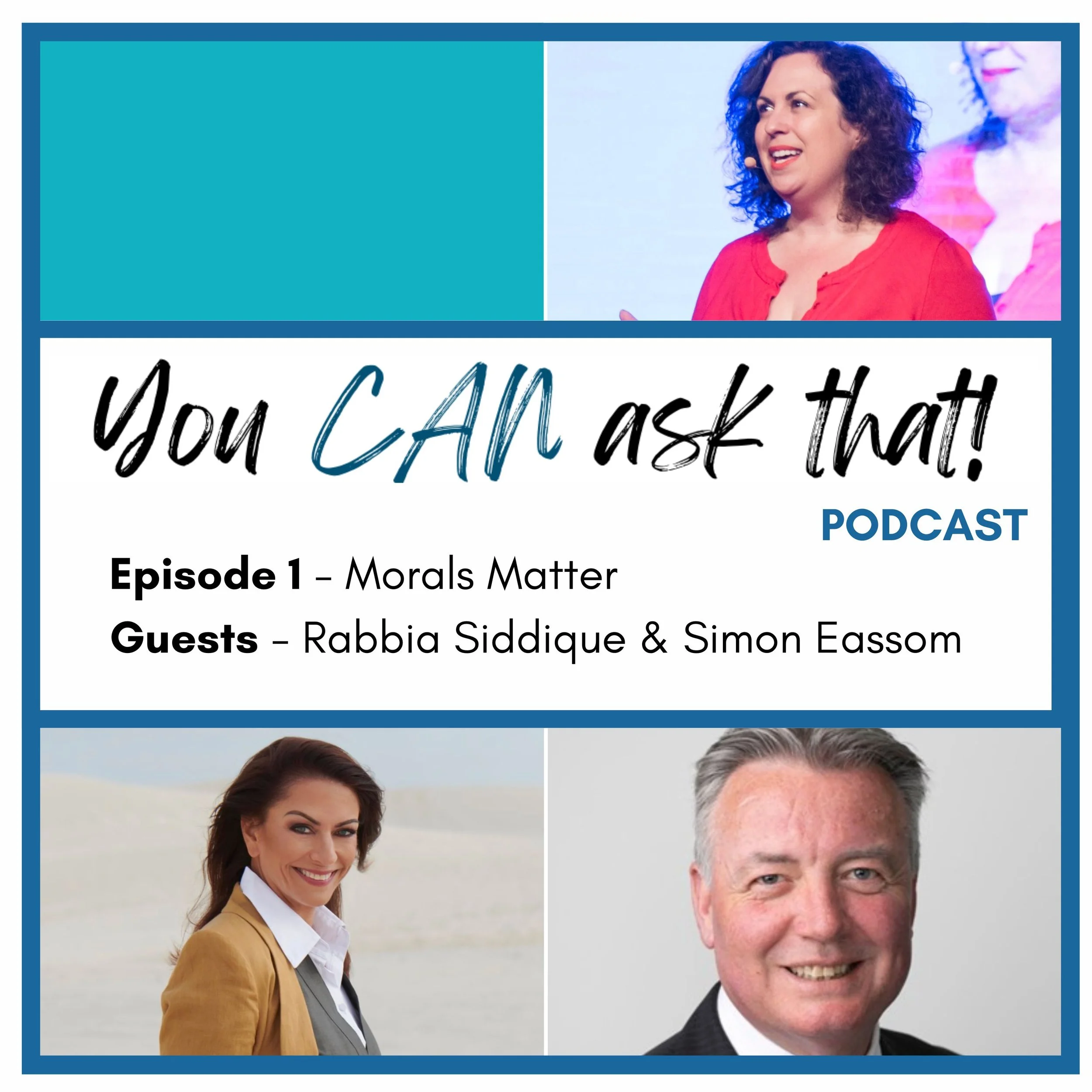Morals Matter
Moral Matter with Rabbia Siddique and Simon Eassom # 1
In this episode of You Can Ask That! I chat with Rabbia Siddique and Simon Eassom on the topic of Morals. Rabia is an international humanitarian lawyer, retired British Army senior officer, former war crimes and terrorism prosecutor and hostage survivor. She has undertaken humanitarian aid work in Asia, South America, Europe and the Middle East, for which she was decorated by Queen Elizabeth II.
Rabia is now a multi award winning story teller, inspirational speaker, leadership consultant, media commentator and human rights advocate. Peace, equity and the sustainability of our planet is what drives her.
Dr Simon Eassom is a specialist in Applied Ethics. From its launch in the late 1990s he was a regular contributor to ‘The Philosopher’s Magazine’ as part of a concerted movement to make philosophy more accessible to the general public.
He was the recipient of one of the first UK university Teacher Fellowship awards for his work in teaching philosophical reasoning and argumentation to non-philosophy specialists and has written an introductory primer on ethics for the complete beginner.
His research interests have encompassed sports ethics, environmental ethics, business ethics, and animal ethics which he has combined with a deep interest in evolutionary theory and anthropology. His moral philosophy is carried over into everyday life where he and his wife rescue and re-train unwanted racehorses. They also rescue and re-home chickens, cats and dogs and live with their menagerie in rural Victoria.
Together we discuss “why does morality matter?” And in this day and age do we know our morals enough to stand up for what we believe in?
KEY DISCUSSION POINTS:
Defining Morals vs ethics, knowing our values and beliefs.
Do we think as individuals we need to overtly connect to out morals more in order to create a fairer / equitably society
Has society’s moral compass changed over time and should we be concerned about this?
Are parents still teaching their children about values and morals - the prevalence of bullying in our schools would suggest otherwise.
How do we embrace and lovingly accept the people who feel like our moral opposites when we are being led to believe that we have nothing in common and we are surrounded by people who see them as our enemies - especially when so much of this plays out on social media.
How do we get really clear on what our morals / values are so that we are comfortable enough to stand up for them?
RELEVANT LINKS
Further Discussion with Dr Simon Eassom
Rabbia Siddique’s story
“Moral Complacency dulls your sense of injustice to the world ”

